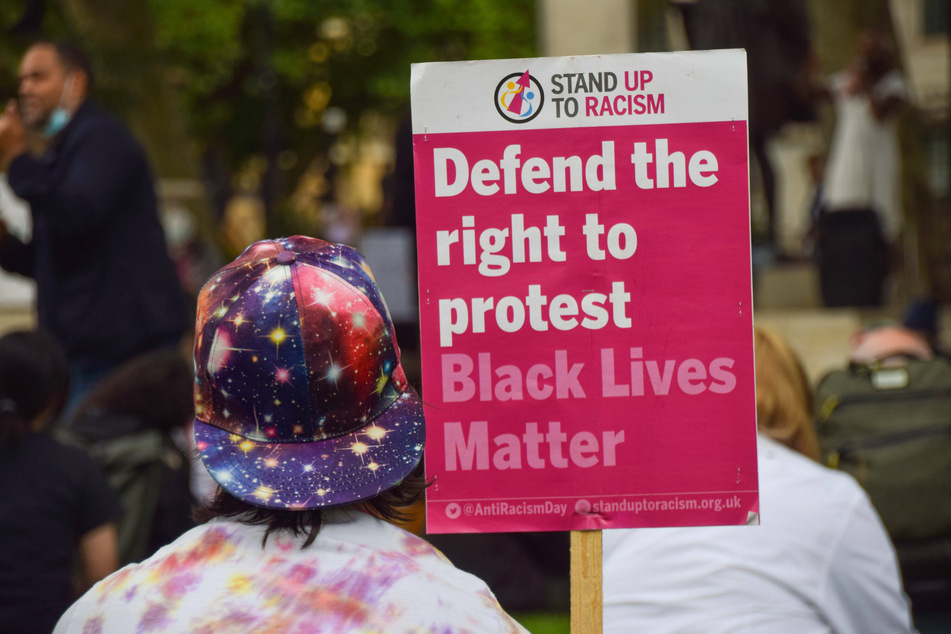Gov. Newsom approves sweeping California police reform laws in wake of Black Lives Matter
Gardena, California - More than a year after George Floyd’s death, Gov. Gavin Newsom signed a stack of bills on Thursday aimed at holding California law enforcement officers accountable for misconduct and restricting uses of force that have resulted in death and injury.

The eight measures signed into law by Newsom include raising the minimum age for police officers from 18 to 21, and allowing their badges to be permanently taken away for excessive force, dishonesty and racial bias.
In addition, the new laws set statewide standards on law enforcement’s use of rubber bullets and tear gas for crowd control, and further restrict the use of techniques for restraining suspects in ways that can interfere with breathing.
Newsom’s approval of the slate of sweeping new legislation in California comes in contrast to a lack of progress made on police reform efforts in Congress, where bipartisan negotiations on law enforcement accountability measures recently reached an impasse after months of negotiations.
"I am here as governor mindful that we are in the juxtaposition of being leader on police reform, and being a laggard on police reform," Newsom said at an emotional signing ceremony Thursday at Rowley Gym in Gardena, where he noted some of the laws follow actions previously taken by other states.
The governor was joined at the ceremony by several legislators and state Attorney General Rob Bonta, as well as the tearful family members of people who have died at the hands of police.
Law enforcement groups opposed some of the state measures, warning that they will undermine the ability of officers to keep Californians safe from criminals.
But a group of progressive prosecutors, including Los Angeles County District Attorney George Gascón, supported changes that they believe will address unfairness in the law, especially for people of color.
"The California Legislature took significant steps towards addressing deep injustices in our criminal legal system," said Cristine Soto DeBerry, executive director of Prosecutors Alliance of California, the group of progressive district attorneys. "These bills will help take problematic police off the streets."
Lawmakers were responding to concerns over incidents such as the May 2020 killing of Floyd that occurred when a Minneapolis police officer knelt on his neck for more than nine minutes during an arrest. The death led to international protests in support of the Black Lives Matter movement, calling for police accountability and the conviction of a police officer for murder.
“We are in a crisis of trust when it comes to law enforcement right now,” Bonta said, adding that the new laws will provide "more trust, more transparency and more accountability."
The ceremony was held at a park where Kenneth Ross Jr. was shot and killed by a police officer three years ago. State Sen. Steven Bradford, D-Gardena, cited the loss of lives at the hands of "rogue policing."
The laws include restrictions on police use of rubber bullets, tear gas, and chokeholds

The bills signed by the governor include a measure by Bradford that allows the lifetime decertification of law enforcement officers found to have engaged in misconduct.
Bradford said the bill was needed because police officers who are fired or resign because of misconduct sometimes go to work for other law enforcement agencies.
Senate Bill 2 "establishes a fair and balanced way to hold officers who break the public trust accountable for their actions and not simply move to a new department," Bradford said.
California joins 46 other states that have procedures to block abusive officers from transferring jobs.
Newsom also said he is signing AB 48, a measure that addresses complaints during the last year of demonstrations over police force cases, including the Floyd killing. Activists said they were injured when police improperly fired rubber bullets at crowds of peaceful demonstrators.
The bill by Assemblywoman Lorena Gonzalez, D-San Diego, sets statewide standards on law enforcement’s use of rubber bullets and tear gas for crowd control. The bill also bars aiming those weapons at the head, neck, or other vital organs.
The governor additionally acted to expand last year’s law banning the use of chokeholds by law enforcement.
The torrent of criminal justice bills this year have signaled that state elected leaders were listening to public concerns, according to DeBerry, the head of the prosecutors alliance.
"The Legislature’s actions reflect the will of the voters of California who have made clear over and over that they support reforms that promote racial justice and fairness," DeBerry said.
Cover photo: Collage: Imago/ZUMA Wire

